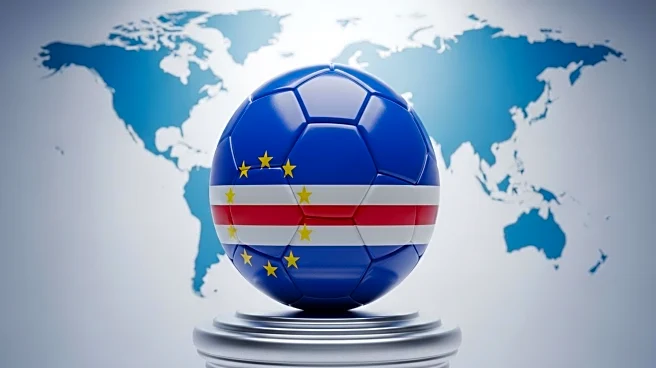What is the story about?
What's Happening?
Cape Verde, a small African island nation, has qualified for the World Cup for the first time after defeating Eswatini 3-0. With a population smaller than Vermont, Cape Verde is the second smallest country to reach the men's World Cup since its inception in 1930. The nation secured its spot by finishing first in its African qualifying group, surpassing Cameroon, a prominent soccer power in Africa. Cape Verde has previously participated in the Africa Cup of Nations four times, reaching the quarterfinals in 2013 and 2023. This achievement places Cape Verde among the smallest countries to ever compete in the World Cup, alongside Iceland, Paraguay, Trinidad and Tobago, and Northern Ireland.
Why It's Important?
Cape Verde's qualification for the World Cup is significant as it highlights the growing competitiveness of smaller nations in international soccer. This achievement could inspire other small countries to invest in their soccer programs, potentially increasing the diversity and competitiveness of future tournaments. For Cape Verde, participation in the World Cup could boost national pride and provide economic benefits through increased visibility and tourism. Additionally, it underscores the unpredictable nature of sports, where smaller nations can challenge traditional powerhouses, potentially leading to shifts in how soccer is approached globally.
What's Next?
Cape Verde will prepare to compete in the 2026 World Cup, hosted by the U.S., Mexico, and Canada. The team will likely focus on strengthening its squad and strategy to face larger and more experienced teams. The qualification could lead to increased investment in sports infrastructure and youth development programs in Cape Verde. As the tournament approaches, Cape Verde may also experience heightened media attention and sponsorship opportunities, which could further support its soccer initiatives.
Beyond the Headlines
Cape Verde's World Cup qualification may have broader cultural implications, fostering a sense of unity and national identity. It could also influence the country's diplomatic relations, as sports often serve as a platform for international engagement. The success of smaller nations in global competitions might encourage discussions on equity in sports funding and development, potentially leading to policy changes that support underrepresented countries.















